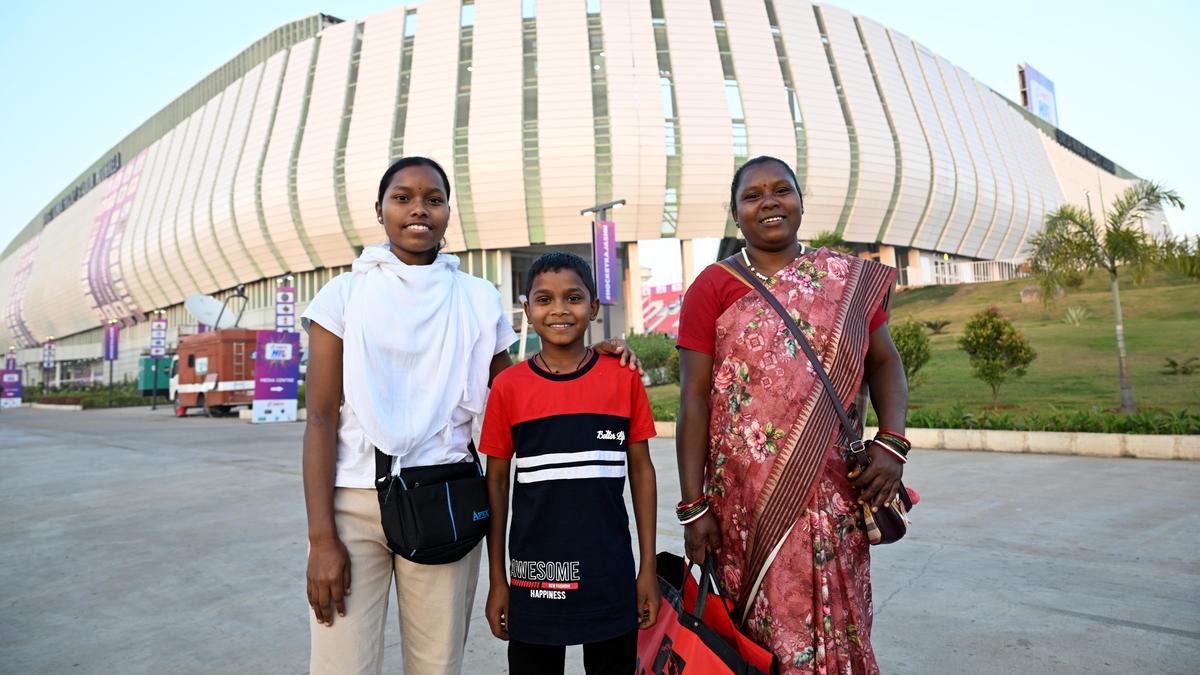
When women take centre stage in the HIL: meet the agents of change in Sundargarh Premium
The Hindu
Jyoti, Sunelita, and Anjali from Sundargarh district shine in women's hockey, inspiring change and dreams in their families.
Jyoti Chhatri’s house, a tiny two-room set topped with an asbestos roof, on the edge of river Brahmani is separated from the State-government-run Panposh Sports Hostel (PSH) by a 10-foot wide road. But it took Jyoti, who was inspired by her elder brother Suraj (once a junior player), four years and a few 100km trips to district headquarters Sundargarh for selection trials to get into the hostel — a famous breeding ground of internationals and Olympians.
Jyoti, hailing from the semi-rural Panposh area on the fringes of Steel City Rourkela, put in some more years and a stint at the Bhubaneswar-based Naval Tata Academy (NTA) before she could play at the iconic Birsa Munda Hockey Stadium (BMHS), situated three kilometres from her home, in India colours and then in first-ever women’s Hockey India League (HIL) champion Odisha Warriors’ uniform.
Sunelita Toppo’s family lives on the campus of the beautiful Krus Vijay Catholic Church at Bihabandh, about 37km away from the BMHS and 16km off the Rourkela-Sambalpur Expressway. When Sunelita, who took to hockey after seeing her maternal aunt (international Anupa Barla) in action, broke the news of her selection at the Sports Authority of India (SAI) centre, Sundargarh, her family extended its wholehearted support.
The teenager has made her family proud by becoming an international and one of the costliest players, picked for ₹24 lakh by Delhi SG Pipers, in the women’s HIL.
Anjali Barwa — from Dhaurana Tana Toli village, two km further away from the Bihabandh church — looked up to her aunt, international Lilima Minz, and decided to follow in her footsteps. Despite financial constraints, her family firmly backed her as she got into the PSH and the NTA. Now, they are thrilled to see Anjali shine in National and Odisha Warriors jerseys.
Jyoti, Sunelita and Anjali are among the 22 players, including seven women, from the tribal-dominated Sundargarh district to feature in the HIL. Like solid case studies, their stories speak of the local populace and their inseparable association with the sport.
A journey through the hinterland of the district exposes one to the restful countryside and rustic churches as well as the random ‘chatfields’ (bald uncultivated land) that stage intense hockey matches with a ‘khasi’ (goat) or ‘kukuda’ (chicken) as trophies.













